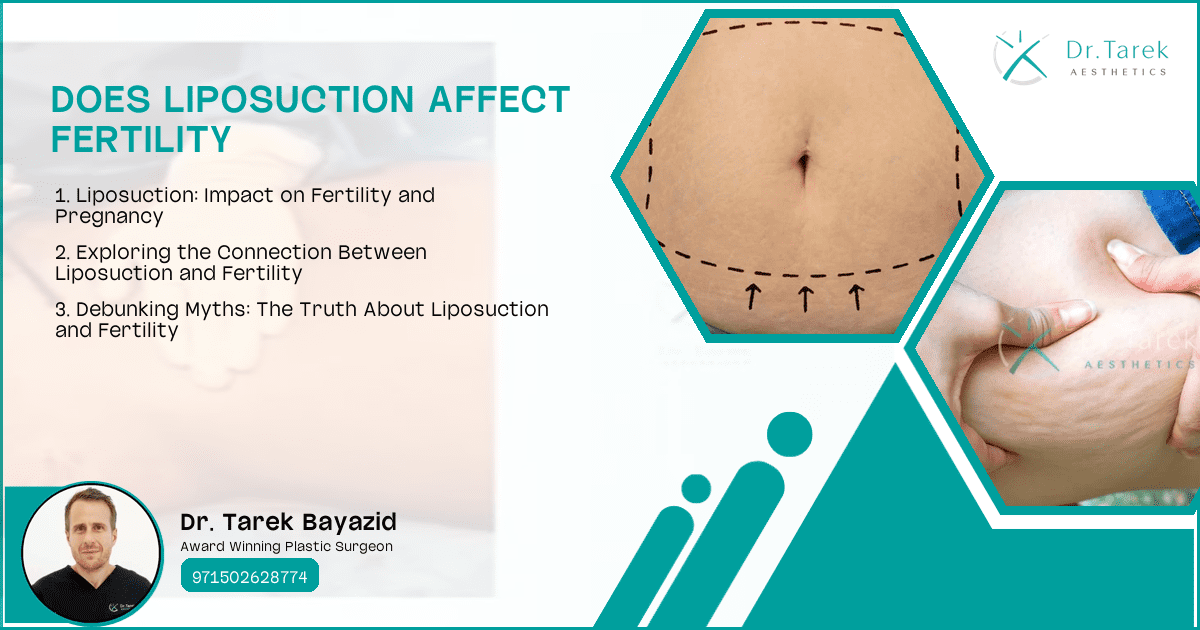Does Liposuction Affect Fertility
Liposuction is a popular cosmetic procedure aimed at removing excess fat from specific areas of the body. While it is widely sought after for aesthetic reasons, many individuals wonder about its potential impact on fertility. This article delves into the question: Can liposuction affect fertility, does liposuction affect fertility? We will explore the relationship between liposuction and reproductive health, potential hormonal changes, and considerations for those planning to conceive.
Can Liposuction Affect Fertility
Liposuction primarily targets subcutaneous fat, which is the fat located just beneath the skin. This procedure does not directly involve reproductive organs. However, the removal of fat can potentially influence hormonal balance, which in turn may affect fertility.
Potential Impacts on Hormonal Balance
Adipose tissue, or body fat, plays a crucial role in hormone production, including estrogen. Removing significant amounts of fat through liposuction could potentially alter hormone levels, which might impact menstrual cycles and overall reproductive health.
Book A Consultation With Dr Tarek Bayazid
Top-rated Plastic Surgeon For Liposuction in Dubai
Installment Plan Available
- Hormonal fluctuations post-liposuction
- Possible changes in menstrual cycle regularity
- Impact on estrogen levels
How Liposuction Works
The Procedure Explained
Liposuction involves the use of a suction technique to remove fat from specific areas of the body. A plastic surgeon makes small incisions and inserts a thin tube called a cannula to suction out the fat.
Areas Commonly Treated
Liposuction is commonly performed on areas such as the abdomen, thighs, buttocks, arms, and neck. These areas are chosen based on the patient’s goals and the surgeon’s recommendations.
- Abdomen
- Thighs
- Buttocks
- Arms
- Neck
Fertility and Body Fat Connection
Role of Adipose Tissue in Hormone Production
Adipose tissue is not just a fat storage site; it also produces hormones like estrogen. These hormones are essential for regulating the menstrual cycle and maintaining reproductive health.
Optimal Body Fat Percentage for Fertility
Maintaining an optimal body fat percentage is crucial for fertility. Both excessive and insufficient body fat can lead to hormonal imbalances that may affect ovulation and menstrual cycles.
- Ideal body fat percentage for women: 20-30%
- Ideal body fat percentage for men: 10-20%
- Impact of extreme body fat levels on fertility
Potential Effects of Liposuction on Reproductive Health
Hormonal Changes Post-Procedure
After liposuction, some individuals may experience hormonal changes due to the reduction in adipose tissue. These changes can affect menstrual cycles and overall reproductive health.
Impact on Menstrual Cycle
Changes in body fat percentage can lead to irregular menstrual cycles. Some women may experience lighter or heavier periods, while others might face delays in their cycles.
- Irregular menstrual cycles
- Changes in period flow
- Potential delays in ovulation
Does Liposuction Affect Male Fertility
Effects on Sperm Production and Quality
Liposuction is less likely to affect male fertility directly. However, significant changes in body fat can influence hormone levels, which might impact sperm production and quality.
Hormonal Changes in Men After Liposuction
Men may experience changes in testosterone levels post-liposuction. While these changes are usually minimal, they can still affect overall reproductive health.
- Minimal impact on sperm quality
- Potential changes in testosterone levels
- Overall reproductive health considerations
Liposuction and Pregnancy
Effects on Future Pregnancies
Liposuction does not typically affect future pregnancies. However, it is essential to maintain a healthy lifestyle post-procedure to ensure optimal reproductive health.
Postpartum Liposuction Considerations
For those considering liposuction after childbirth, it is advisable to wait until the body has fully recovered from pregnancy and breastfeeding.
- No significant impact on future pregnancies
- Importance of a healthy lifestyle
- Timing considerations for postpartum liposuction
Dr. Tarek’s Perspective on Liposuction and Fertility
Professional Recommendations
Dr. Tarek emphasizes the importance of consulting with both a plastic surgeon and a fertility specialist before undergoing liposuction. He advises patients to consider their family planning goals and overall health.
Alternatives to Liposuction for Fertility-Conscious Individuals
Non-Invasive Body Contouring Options
For those concerned about the potential impact of liposuction on fertility, non-invasive body contouring options like CoolSculpting and SculpSure can be considered.
Lifestyle Changes for Weight Management
Adopting a healthy lifestyle with balanced nutrition and regular exercise can help manage weight without the need for surgical intervention.
- CoolSculpting
- SculpSure
- Healthy lifestyle choices
Long-Term Effects of Liposuction on Reproductive Health
Follow-Up Studies and Research Findings
Long-term studies indicate that liposuction does not have a significant impact on fertility for most individuals. However, ongoing research is essential to understand the full scope of its effects.
Monitoring Fertility Post-Liposuction
Regular check-ups with healthcare providers can help monitor reproductive health post-liposuction and address any concerns promptly.
- Long-term research findings
- Importance of regular check-ups
- Addressing concerns promptly
Statistics on Liposuction and Fertility
Percentage of Patients Reporting Fertility Issues Post-Liposuction
According to the American Society of Plastic Surgeons, a small percentage of patients report fertility issues post-liposuction. However, these cases are often linked to pre-existing conditions rather than the procedure itself.
Success Rates of Pregnancy After Liposuction
The National Institutes of Health reports that the success rates of pregnancy after liposuction are comparable to those of the general population, indicating no significant impact on fertility.
| Statistic | Source |
| Small percentage of patients reporting fertility issues | American Society of Plastic Surgeons |
| Success rates of pregnancy post-liposuction | National Institutes of Health |
By understanding the potential impacts of liposuction on fertility and consulting with healthcare providers, individuals can make informed decisions about their reproductive health and cosmetic goals.
FAQ’s
Can Liposuction Cause Infertility?
Liposuction does not directly cause infertility. However, significant changes in body fat and hormonal balance can potentially impact reproductive health. It is essential to consult with healthcare providers to understand individual risks.
How Long After Liposuction Can You Try to Get Pregnant
It is generally recommended to wait at least six months after liposuction before trying to conceive. This allows the body to recover and stabilize hormonally, ensuring a healthier environment for pregnancy.
Is It Safe to Have Liposuction While Trying to Conceive
Undergoing liposuction while trying to conceive is not advisable. The procedure and recovery period can cause stress and hormonal fluctuations, which might affect fertility. It is better to complete the procedure and allow time for recovery before attempting to conceive.











Related Posts